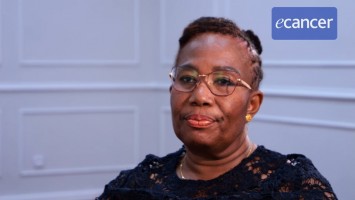The Indo-Pacific is the region that extends broadly from India all the way to the Pacific Ocean, surrounded by India and the Pacific Ocean, and includes an incredible diversity of countries and political settings. Countries that have very high population, as well as countries that have very low population, different level of economy, but many rapidly developing economies, for example Vietnam is one of the most rapidly developing economies here. Most importantly, this is an area of very high prevalence of cancer because of the high population. 40% of cancer survivors around the world, or 40 million people, reside in an area of the Indo-Pacific.
This is certainly an area where cancer survivorship care is a priority. It’s also an area where we can actually learn from different models of care delivery that potentially would provide some useful insights into how we provide cancer care across the globe. For example, as we’ve learned from the conference here today, there are significant levels of innovation in peer support, in patient navigation, in countries with limited healthcare resources where non-government organisations and patient advocacy organisations work to assist in care delivery. These models of care are actually incredibly innovative, where patients themselves and cancer survivors provide additional support.
There is a diversity of needs in different settings, and I think we can learn from cultural differences in patients’ needs. We can learn from comparing outcomes in different settings, for example, we’ve looked at the data in needs of patients across the Indo-Pacific and we’ve learned that issues like psychosocial care and fear of cancer recurrence are uniformly a big problem across the region to all cancer survivors in all settings. The symptom burden after cancer diagnosis is actually very similar whether you come from a low or high income country, but the access to healthcare is different in low resource economies. There is an opportunity in a region as large as the Indo-Pacific, where countries with better resources, for example Australia, can actually partner with countries that have more limited resources to develop partnerships, initiatives, that can actually improve care, and potentially where partners can learn from each other.
Can you provide some examples of partnership initiatives that aim to improve cancer care?
We’ve heard today about the partnership between survivorship programmes in Korea where there are some well-established programmes in cancer survivorship, and the learnings from Korea to be adapted in the setting of Vietnam, where the resources are more limited. That’s one of the examples. There are examples of research networks, for example Australia has been hosting a programme called Australia and Asia Pacific Clinical Oncology Research Development, which is a programme that is supposed to scale up emerging clinician researchers to design and conduct research in cancer, and that programme actually invites disciplines from all over the region to learn how to conduct research, how to conduct clinical trials, how to publish them, so that’s another way of actually partnering across the region.








